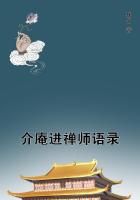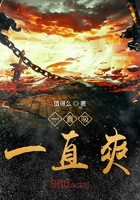The cold was still severe, and no one answered her call for wood. Isabel crouched, white and shivering, over the dying embers, and it was she who first uttered the fear Antonia had refused to admit to herself--"Suppose the servants are forbidden to wait upon us!"
"I will bring wood myself, dearest." She was greatly comforted by the word "us." She could almost have wept for joy of the sympathy it included. For thought is rapid in such crucial moments, and she had decided that even flight with her would be a kinder fate for Isabel, than the cruel tender mercies of the Sisters and the convent.
They could not talk much. The thought of their mother's anguish, and of the separation put between them and their household, shocked and terrified them. Vainly they called for fuel. At dinner time no table was laid, and no preparations made for the meal. Then Antonia went into the kitchen. She took with her food, and cooked it. She brought wood into the parlor, and made up the fire. Fortunately, her northern education had given her plenty of resources for such emergencies. Two or three savory dishes were soon ready, and the small table set upon a warm, bright hearth.
The Senora had evidently not been included in the ban, for Rachela attended with ostentatious care to her comfort; but Isabel had rolled herself up in a wadded silk coverlet and gone to sleep. Antonia awakened her with a kiss. "Come, queridita, and get your dinner."
"But is it possible? I thought Fray Ignatius had forbidden it."
"He cannot forbid me to wait upon you, my darling one. And he cannot turn the flour into dust, and the meat into stone.
There is a good dinner ready; and you are hungry, no doubt."
"For three hours I have been faint. Ah! you have made me a custard also! You are a very comforter."
But the girl was still and sad, and Antonia was hard pressed to find any real comfort for her. For she knew that their only hope lay in the immediate attack of the American force, and its success; and she did not think it wise to hide from her sister the alternatives that lay before them if the Americans failed.
"I am afraid," said Isabel; "and so unhappy. A very sad business is life. I cannot think how any one can care to live."
"Remember Luis, and our father, and Jack, and Thomas, and our dear mother, who this morning stood between us and Fray Ignatius. Will you let this priest turn the sky black above you?"
"And also, men will fight. What for? Who can tell? The Americans want so much of everything. Naturally they do not get all they want. What do they do? Fight, and get killed.
Then they go into the next world, and complain of people. As for Luis, I do not expect to see him again."
Fortunately, the norther moderated at sunset. Life then seemed so much more possible. Adverse elements intensify adverse fortune, and the physical suffering from the cold had also benumbed Antonia's spirits, and made her less hopeful and less clear-visioned. But when she awoke at the gray dawn of the next day, she awoke with a different spirit. She had regained herself. She rose quietly, and looked out towards the city. The black flag from the Alamo and the Missions hung above it. She looked at the ominous standards, and then the tears sprang to her eyes; she lifted her face and her hands to heaven, and a few words, swifter than light, sprang from her soul into the ear of the Eternal Father of Spirits.
The answer came with the petition--came with the crack of rifle shots; precise, regular, unceasing.
"Oh God! I thank Thee! Lord of Hosts, Thou art a great multitude! Isabel! Isabel! The Americans are attacking the city! Our father will fight his way back to his home! Fray Ignatius can not come to-day. Oh, I am so happy! So happy!
Listen! How the Mexicans are shouting! They are cheering on the men! What a turmoil!"
"Jesu, Maria, have mercy!" cried Isabel, clasping her crucifix and falling upon her knees.
"Oh, Isabel, pray for our father, that his angel may overshadow him with strong wings."
"And Luis?"
"And Luis, and Thomas, and Jack, and Dare. There are prayers for them all, and love enough to make them. Hark! there are the drums, and the trumpets, and the gallop of the cavalry.
Come, dearest, let us go to our mother. To day, no one will remember Fray Ignatius."















